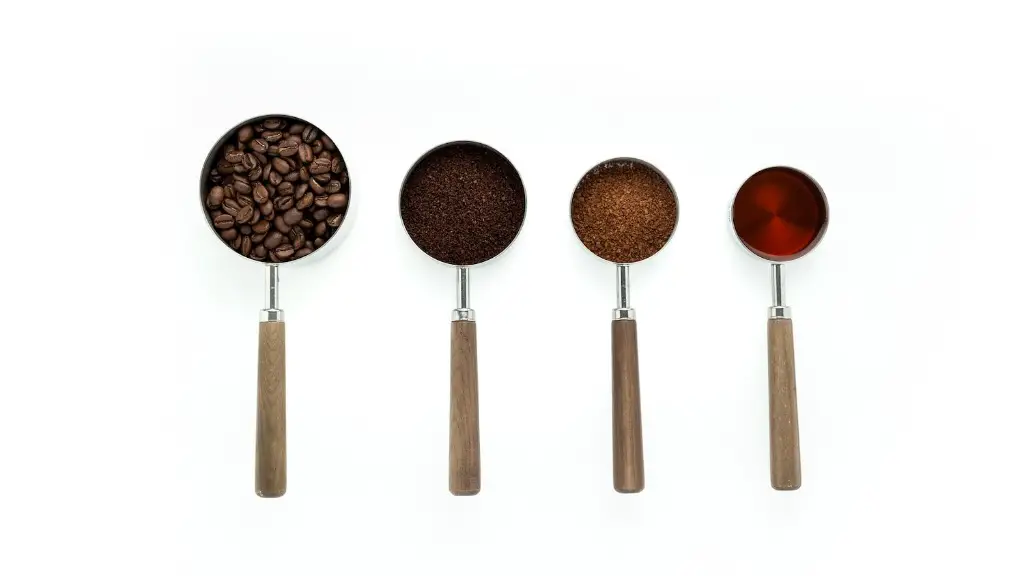A cup of coffee gives many of us the morning energy boost we need and crave, but for some of us, it could be causing an immune response. The anti-inflammatory diet has become increasingly popular and many people swear by its anti-inflammatory properties that can lead to improved immunity, digestion, and overall health. However, one thing people on this diet may wonder is if coffee is compatible with their plans. Here’s what to know about coffee and anti-inflammatory diets.
The Benefits of an Anti-Inflammatory Diet
An anti-inflammatory diet can be incredibly beneficial, as it focuses on eliminating foods and drinks that promote inflammation. Common culprits are: fried foods, processed and refined grains, trans fats, sweeteners, and many processed and canned foods. Replacing these with unprocessed foods – mainly fruits and vegetables, whole grains, fatty fish, nuts, seeds, and healthy fats – helps to reduce inflammation, which can help with a myriad of symptoms, from joint pains to mood disturbances. Additionally, research has found that non-steroidal anti-inflammatory drugs are associated with a higher risk of heart failure, so for some, turning to an anti-inflammatory diet as a non-medicinal weapon against reducing inflammation is a more palatable option when trying to reduce inflammation.
Coffee and Inflammation
When it comes to coffee and an anti-inflammatory diet, it really depends on what type of coffee you’re drinking. If you love a cup of brewed black coffee, that’s an anti-inflammatory-friendly option, since it contains no sugar, add-ins, or milks that contain potentially pro-inflammatory substances. That said, if the only type of coffee you like is a Frappuccino with extra foam, which is essentially more of a milkshake, this is not an optimal choice for an anti-inflammatory diet. Too much of the added sugar, syrup and dairy can quickly turn your coffee drink into an inflammatory meal.
Dose Matters
It’s important to keep in mind that, in most cases, moderate consumption of black coffee can be part of an anti-inflammatory diet. That said, it’s important to recognize the individual needs, and if coffee leads to stomach pains and further inflammation, it may be best to avoid it. It’s also essential to consider your caffeine intake, as high caffeine doses can lead to a release of stress hormones which can, in turn, lead to inflammation. Furthermore, some people may also be sensitive to the acid component of coffee, which could also lead to a pro-inflammatory response.
Risks Associated with Too Much Coffee
In addition to the risks of inflammation associated with too much coffee, there are also risks associated with an overly caffeinated body. Caffeine is a stimulant and it affects the body’s natural sleep cycles. Too much caffeine can lead to chronic insomnia and later, when those cycles aren’t operating properly, issues can arise with alertness and attention. Furthermore, too much caffeine can also have downstream effects on physical and mental health, and can directly affect metabolism, contributing to weight gain and issues with regulation of appetite hormones.
Habitual Vs Moderate Coffee Consumption
When it comes to coffee and anti-inflammatory diets, it’s important to recognize that moderation is key. People who drink coffee as part of their morning routine, will have higher levels of inflammation than those who approach coffee in a more moderate way. Habitual coffee drinkers may develop a tolerance to coffee’s diuretic effects, which may lead to dehydration and, possibly, inflammation.
Brewing Method and Anti-Inflammatory Diets
It’s also important to consider the method of brewing when it comes to coffee and anti-inflammatory diets. Since ground coffee beans contain two of the most potent antioxidants, phenylethylamine and chlorogenic acid, cold-brewing coffee beans are the optimal method of preparation. This method of preparation prevents the oxidation of antioxidants, so more of them will make make it into the cup.
Caffeine-Free Alternatives
If limiting or quitting coffee altogether isn’t appealing, there are a few caffeine-free options that can offer some anti-inflammatory relief without the jitters. You can try a herbal or adaptogenic tea, such as turmeric tea, or a caffeine-free matcha with creamy nut milk.
Choosing the Right Foods
In general, an anti-inflammatory diet is not only beneficial for reducing inflammation, but also to support overall health. While the occasional cup of black coffee can be compatible with such a diet, it’s important to pay attention to how you’re feeling and perhaps transition away from coffee to other healing alternatives. It’s also important to keep a focus on whole foods, and limit the consumption of processed and refined foods, which are a major source of inflammation.
The Effectiveness of an Anti-Inflammatory Diet
Research and anecdotal evidence have both suggested that an anti-inflammatory diet may turn out to be beneficial for reducing inflammation and symptoms, such as joint pain and digestive disturbances. However, some argue that since the diet is quite restrictive, with many participants having to give up many of their regular snacks and indulgences, the results may be more related to in the dietary changes, rather than the anti-inflammatory effects of the diet itself. Therefore, if you decide to adopt an anti-inflammatory diet, be mindful of which other dietary changes could be contributing to the improved symptoms.
Improve Your Gut Health
Gut health has been increasingly linked with inflammation levels in the body, so it’s essential to take good care of your digestive tract when it comes to managing inflammation. Probiotic-rich foods like yogurt, tempeh, and kimchi are helpful for maintaining gut health and reducing inflammation, as are other soluble-fiber rich, whole foods. Additionally, there are also several supplements to ensure that you’re getting adequate amounts of essential pre- and probiotics that promote a healthy gut microbiome.
Exercise
Exercise has long been known to reduce inflammation, to the extent that it could even cancel out the pro-inflammatory effects of a poor-quality diet. Of course, it’s important to know your limits and give your body plenty of rest, but incorporating some form of physical activity like yoga and stretching, walking, light jogging, and swimming, can be especially beneficial for reducing inflammation and managing symptoms.
Find Your Balance
At the end of the day, it’s important to find the balance that works for you when it comes to food, drinks, and other activities. Everyone is different, and only you know how your body responds to certain foods. Coffee can be part of an anti-inflammatory diet when enjoyed in moderation, without all the added sugary extras, but it’s also important to explore other methods of calming and soothing the body and making lifestyle changes that will bring the best results in the long run.



